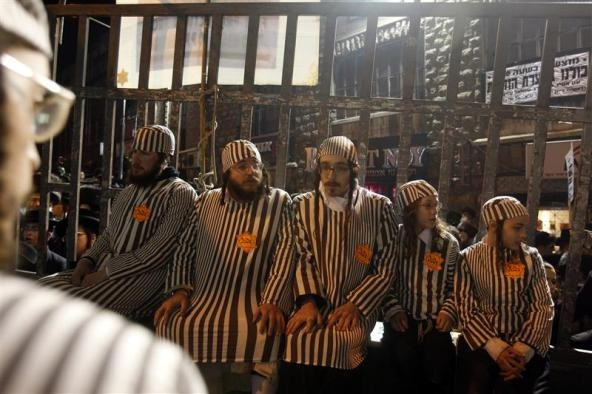Tanya Rosenbilt Israel's 'Rosa Parks' Receives Death Threats

Tanya Rosenbilt, the "Israeli Rosa Parks" who refused to move to the back of the bus when requested by an ultra-Orthodox man last month, said Wednesday that she received several death threats, Haaretz newspaper reports.
The woman filed a complaint to the Yarkon District police claiming she received threats by email, phone ad Facebook.
Last month, Rosenbilt defied demands by an ultra-Orthodox man who ordered her to sit on the back of a sex-segregated public bus traveling from Ashdod to Jerusalem. In response, the man stopped the bus and held the door open for 30 minutes. When other passengers started to complain, the driver called the police. A police officer who rushed to the scene also asked Rosenbilt to move to the back of the bus. When she refused, the man who had been holding the door alighted and the bus continued on its way.
Gender segregation is a growing issue in Israel. Religious neighbourhoods in Jerusalem already have bus lines segregated for women, who are forced to sit in the back of vehicles. Some rabbis in Jerusalem have demanded that business avoid posting photographs of women or employing them in any of the shops patronised by the ultra-Orthodox.
Though numbering only 10 per cent of Israel's mostly Jewish population of 7.7 million, ultra-Orthodox voting patterns give them considerable clout, helping them secure welfare benefits and wider influence.
Last month around 1,000 pro-democracy activists gathered in Israeli city of Beit Shemesh to rally aafter an eight year old girl was spat by ultra-Orthodox Jews who deemed the child's dress "immodest." The case of raised anger and criticism across the Israeli society.
In response to the rally, ultra-Orthodox Jews took to the street to protest what they believe to be a nationwide campaign against their lifestyle. During the gathering, they donned Star of David patches and uniforms similar to those the Nazis forced Jews to wear during World War II, sparking outrage among Israeli Holocaust survivors and political leaders.
© Copyright IBTimes 2025. All rights reserved.





















